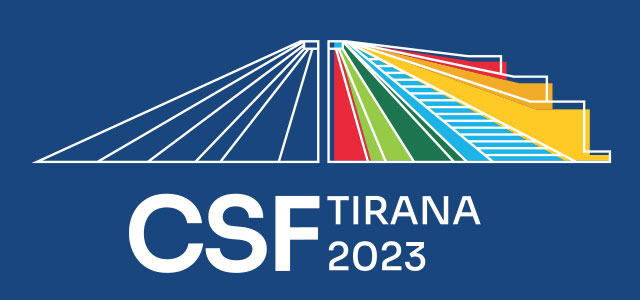| CSF
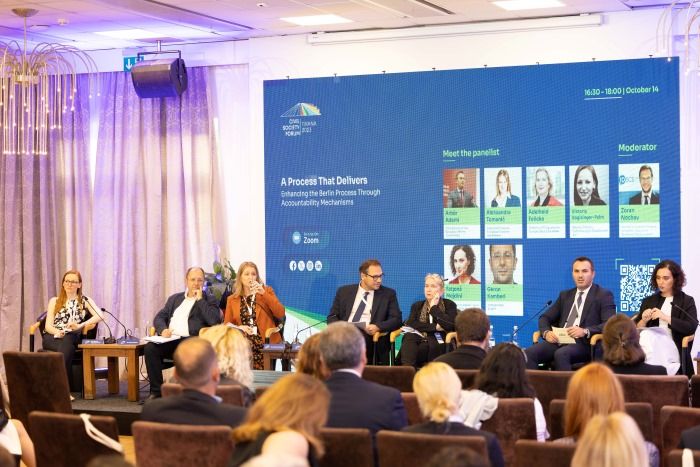
Representatives from civil society, media, and parliamentarians from the Western Balkans and EU Member States discuss innovative approaches, mechanisms, and methods to enhance the accountability of the Berlin Process, with the aim of achieving more effective outcomes in promoting positive change.
Arbër Ademi, Chairperson of the European Affairs Committee in North Macedonia's Assembly, conveyed key messages from the recent European Affairs Committee chairs' conference in Tirana before the Civil Society and Think Tank Forum 2023. He highlighted a unanimously adopted declaration urging a more robust parliamentary role in the Berlin Process, emphasizing the need for comprehensive information dissemination to parliamentary representatives and MPs. Ademi emphasized accountability's pivotal role, calling for clear benchmarks and an impartial monitoring system across domains like the rule of law and regional cooperation. He stressed the importance of transparent mechanisms involving not only the government but also civil society and think tanks. Responding to a query about parliamentary readiness, Ademi affirmed the region's parliaments had the required capacities, underscoring the essential role of strong political will for success in such processes.
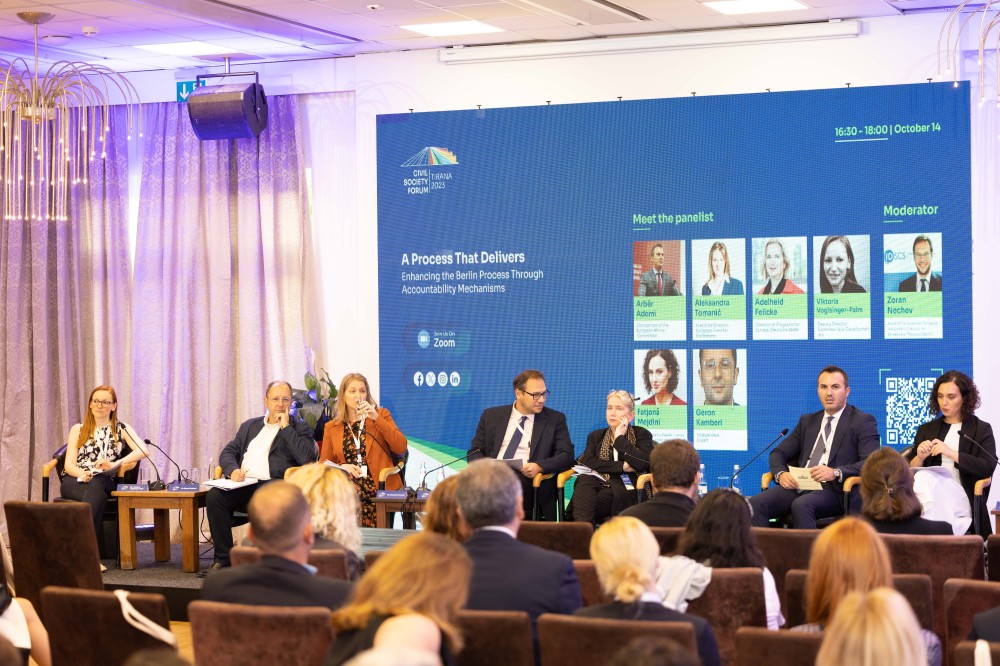
Viktoria Voglsinger-Palm, Deputy Director of Südosteuropa-Gesellschaft e.V, emphasized the increasing expectations for the Berlin Process to deliver tangible outcomes due to numerous commitments and signed declarations. She highlighted the importance of the parliamentary dimension, emphasizing its direct impact on citizens and urging involvement from civil society, businesses, the EU, and regional political leaders. Voglsinger-Palm stressed the need for official procedures to endorse monitoring results, ensuring active engagement at both the political and public levels. Voglsinger-Palm stressed that tailoring monitoring results to different audiences and implementing accountability mechanisms, including collaboration with parliaments and the media, are crucial for the successful realization of BP commitments.
Aleksandra Tomanić, Executive Director of the European Fund for the Balkans, observed challenges in national public consultations and parliamentary amendments being overlooked. She questioned whether the current momentum in enlargement efforts is being effectively utilized or if structures are being built for something meant to be temporary. Tomanić highlighted the accountability and monitoring processes within the enlargement framework, including chapters, clusters, and benchmarks, expressing concern over their effectiveness. She drew attention to regional violence, casualties, and the need to take the threat of new wars seriously. Tomanić criticized leaders for not fulfilling commitments made in the Vienna Declaration on bilateral disputes. Additionally, she underscored the significant investments by civil societies compared to insufficient efforts from governments in terms of money, resources, knowledge, and time.
Fatjona Mejdini, Director of the Southeastern Europe Observatory at the Global Initiative against Transnational Organized Crime, emphasized the current significance of the Berlin Process for the Western Balkans. She stressed its irreplaceability and noted the failure of initiatives like Open Balkans to generate similar trust and enthusiasm. Mejdini highlighted the lack of significant progress in Western Balkan countries' EU integration efforts, especially considering the security crisis in Europe, which could potentially affect the region. She called for discussions on process efficiency and building accountability, starting with Western Balkan policymakers setting clear, realistic goals with timelines. Mejdini emphasized the active role civil society can play in monitoring government commitments, underscoring the need for an independent accountability mechanism within civil society to assess the implementation of building processes.
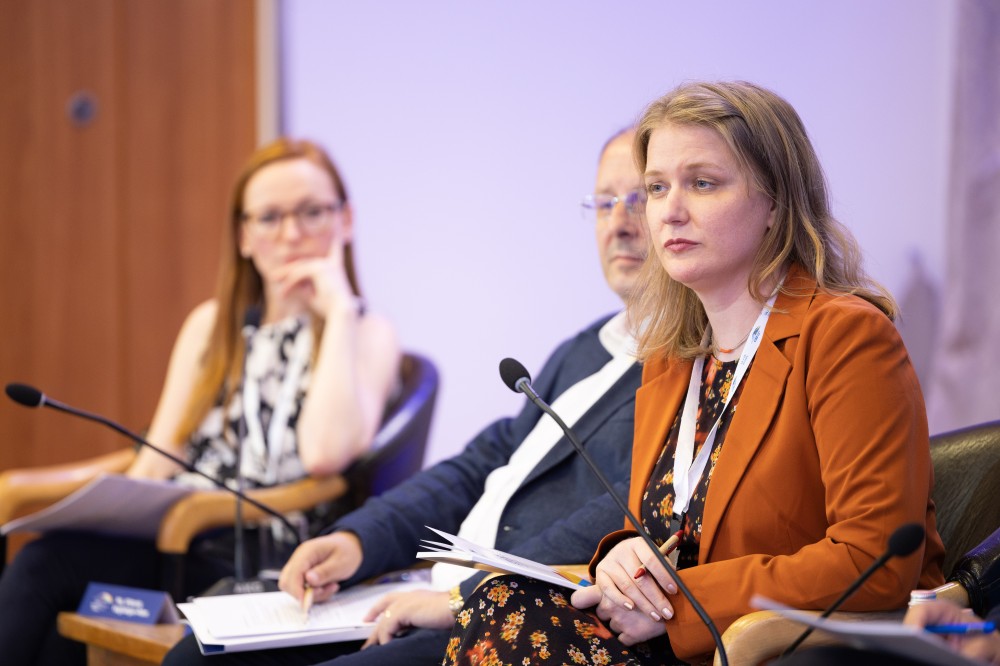
Adelheid Feilcke, Director of Programs for Europe at Deutsche Welle, expressed concern that discussions about the accountability of the Berlin Process are disconnected from people's reality, with the general population not understanding the discourse. She questioned the relevance of the process and its importance to the public, emphasizing the need for progress that resonates and delivers tangible outcomes. Feilcke recommended increasing the number of journalists reporting on the process and fostering regional networking to bridge the gap in media coverage. She urged representatives at the forum to share concrete stories, enabling journalists to provide more meaningful coverage and connect with people in the region.
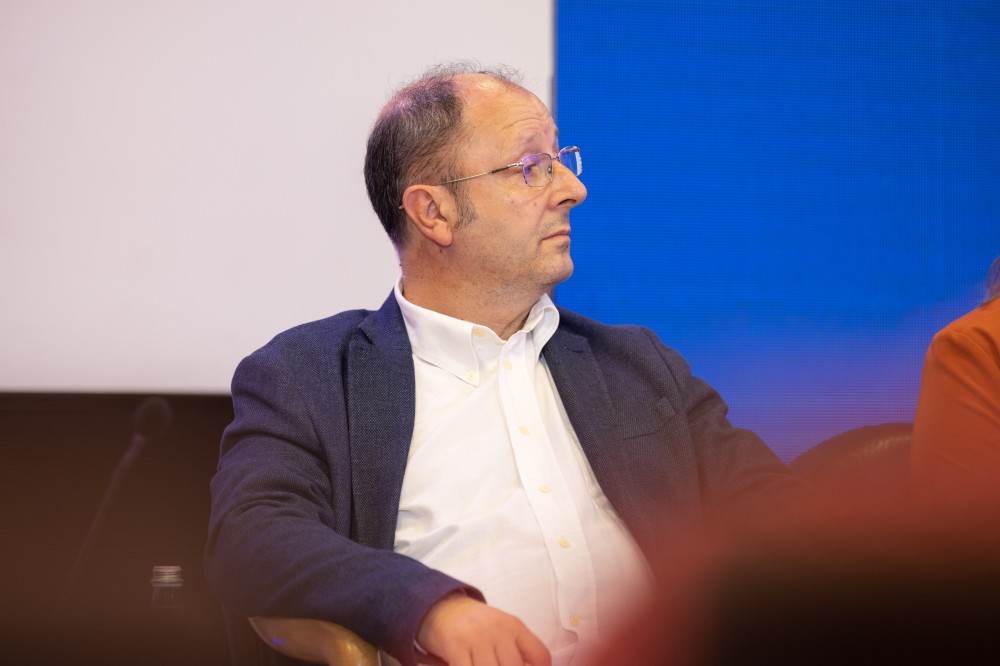
Geron Kamberi, an Independent Expert, outlined a proposed civil society monitoring mechanism for the Berlin Process in the Western Balkans. The concept involves a consortium of civil society organizations from each country, comprising a think tank and a watchdog organization. The aim is to produce annual reports covering various policy areas to present to decision-makers during the Berlin Process Summit. Kamberi also suggested establishing a Berlin Process observatory to enhance transparency.
The panel message stressed the Berlin Process's crucial role, emphasizing the need for a comprehensive strategy involving parliamentary bodies, civil society, media, and robust accountability systems to ensure positive impacts on the region's citizens. The dedication of all stakeholders, including governments, is deemed essential for achieving the process's objectives.
The discussion was chaired by Zoran Nechev, Head of the Centre for European Integration and Senior Researcher, Institute for Democracy “Societas Civilis” Skopje.
